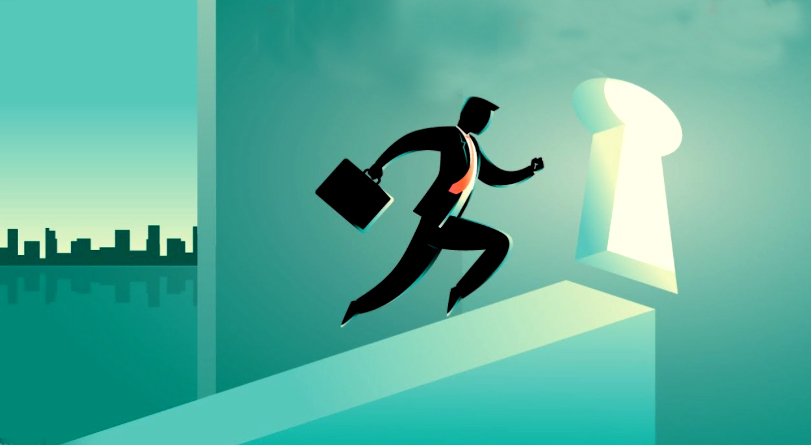 History has taught us that the Biblical Moses was a very wise man. Few of us, however, may be familiar with another wise fellow named Khidr. Moses met Khidr very long ago and asked to be a student of this venerable master. Khidr agreed and the two of them set out on a journey of sorts through ancient places and time.
History has taught us that the Biblical Moses was a very wise man. Few of us, however, may be familiar with another wise fellow named Khidr. Moses met Khidr very long ago and asked to be a student of this venerable master. Khidr agreed and the two of them set out on a journey of sorts through ancient places and time.
As the story unfolds in the Koran, Khidr tells Moses that he must be patient in order to learn anything from him, and that if he proves impatient and questions Khidr’s actions, he will no longer allow his company. Moses of course agrees and they continue on their adventure. The first confusion for Moses occurs when Khidr proceeds to cause, by the deliberate infliction of damage, the sinking of several boats owned by village fishermen. Moses is appalled and expresses his discontent to Khidr, who, although annoyed with Moses’ impatience, ignores his tirade and continues their journey.
After a while the two travelers meet a young man on the road and Khidr surprisingly kills him. Moses is once again appalled, and tells Khidr he can see no reason for such an atrocious act.
Khidr again reminds Moses that if he is to learn from his master he must be silent and ask no questions.
The two move on, and after a bit more traveling Khidr comes upon a wall that is crumbling down. He proceeds to repair the wall, with no compensation from the village peasants. Moses is beside himself, and states again that this act simply makes no sense to him, and he can see no wisdom at all in Khidr’s actions.
Khidr was not happy with Moses.
He proceeds to tell him that each act had in it a necessity to avoid further or greater suffering and turmoil. The boats were scuttled so that the local authority would not confiscate them and leave the fishermen with no way to provide for their families…the damage could easily be repaired when the king left the vicinity. The boy killed on the road would have become a disgrace to his God loving parents, as Khidr was aware of the boy’s indiscretions and violations. The wall was repaired as beneath it was to be found a treasure belonging to two orphans whose father was a righteous man. Khidr explained that he repaired the wall as God’s envoy, showing the kindness of God by rewarding the piety of the orphan’s father.
Moses was told to leave—Khidr had nothing to teach such an impatient man.
Although set in an ancient time where the devices of metaphor may not have the same correlation with our modern day and age, there is something precious to be gleaned from this story found in one of the worlds greatest sacred texts. I have thought how often is it that I cannot see the wisdom of the action of others that I thought were acting in my best interests. When I was a child it was my parents, now often it is my partner, or my friends or even at time the bosses I have known who may actually know something I don’t know, or simply be wiser or more experienced in a particular situation. These people are so often are seen as acting without cause or consideration.
How often do we look at the difficulties in life, and then obscure the silver lining through our tears and feelings of injustice? We may easily miss what could be the lesson learned of becoming better parents to our children, more loving and compassionate partners or simply more giving and caring human beings in a world filled with suffering and pain.
I certainly can learn something from Moses—that patience is often a virtue—that if I lay my trust in the wisdom of the cosmos and of others who may be wiser than me and allow time, understanding, and reflection seep more often into my daily life, I may glean wonders that I would otherwise never have been aware of.
Needless to say our first response to many things may in fact be the most accurate and best serving, but very often we do find that a little patience in the face of confusion and misunderstanding yields positive results.
I wonder now who is the wise Khidr that is walking beside me on my present journey. Although so often our culture teaches us to be cautious with those around us, maybe at times it is more advantageous to wait to see what good could come from situations that first confuse or annoy us. It is always good to be conscious, but it is also a virtue to be patient, and to trust in the mysterious ways love may express itself in our lives.







I have read the whole story. It was interesting and the story that makes me think about patience. Well… It was a good story. I felt like there was riddle in this story. Well right now with the medicines I’m on it’s best answer I could give.
Thank you for sharing this good story. It teaches a lesson with history…
Your post is right on in my opinion. I see its appropriateness in my own life, and in the lives of the clients I see. We are quick to jump to conclusions and to believe that we always know best and that those around us are the ones who are ‘wrong’. Patience is a virtue and we have much to learn in this life from people and experiences that we least expect it from.
This story also appears in the Bible though I am not sure where. I would like to read it again so if anyone can tell me where to find it I’d be very grateful.
Thanks
Dear Todd,
perhaps you know but don’t say…that this story in the Qur’an points to ANOTHER knowledge, beyond the prophetic knowledges, the knowledge called Ilm-i-Ladunni, “Gods private knowledge of Himself” which Khidr is the guardian of, and initiator into by the will of God. He is revered amongst Sufis/ melamis because of this direct knowledge, knowledge through Being, from our own interior. The Qur’an further says that “even the bees have this knowledge”. So, not an intellectual knowledge, or a written knowledge; if written at all, written in the hearts of men and women.
Suleyman Ata of the Central Asian Khwajagan school of sufism/ melamism said “Treat every night as the Night of Power,and everyone you meet as Al Khidr”. Because Al Khidr is like Elijah, with whom he is often identified or twinned, immortal, and able to appear in whatever way and as whomsoever he wishes. He appears too in the “Alexandrian Romances”, and this ‘legend’ (to many of us an experienced reality) is current across the whole ‘old world’ in one form or another, from long before Islam; the “Green Man” that appears in carvings in almost every ancient cathedral and abbey is only one example. He is the helper and guide of those drawn to the innermost mysteries, not exactly man, angel, or prophet…a liminal figure like Jung’s “The Angel Philemon”, whom he drew from life.